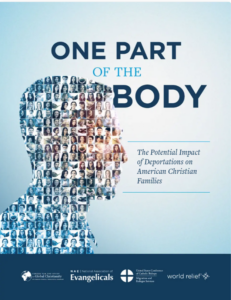
The following is a true account of a Southern Baptist pastor and his wife. The names have been changed to protect the privacy of the couple who agreed to tell their story in the hope of helping others.
NASHVILLE, Tenn. (BP)–“What you believe about finances and your future either frees you or keeps you in bondage,” a Southern Baptist pastor said he and his wife have learned.
Sarah and Joe consider themselves a fairly typical ministry couple. They are 30-something and have children. Thus far, three pastorates have provided average salaries and benefits.
“I wouldn’t consider us a couple ready to jump off a bridge,” Joe reflected, “but we were living paycheck to paycheck. When we had an emergency, we’d take out a home equity loan. We had practiced budgeting and some degree of financial management.”
Debt was not holding them prisoner, he said. Like many other couples, financial lies were holding them captive. “We believed the lie that we couldn’t save and have an emergency fund.”
As an average couple with average income, they wondered aloud how friends who made less money managed day to day, much less when crises came.
“The week one of our children was born, our air conditioner went out,” Joe cited as an example. For Joe and Sarah, two financial needs coming at the same time constituted a crisis.
A banker once told them, in fact, that ministers are considered among the worst credit risks by lenders. “It hurts your credibility if you can’t meet your obligations. It’s a source of stress,” Sarah said.
Like many other church-staff couples, they have made provisions for retirement.
“Early in our ministry, we had churches we served put a part of my salary in an [SBC] Annuity Board account,” Joe said. “But we didn’t have a readily available savings account. I found it difficult to talk to my churches about financial needs, even during church budgeting time.
“Our parents have helped us with gifts through the years, not necessarily to bail us out but to affirm us in ministry. In one church, a member gave us a substantial sum toward a vehicle. And as wonderful as that gift was, we still had a monthly payment.”
Sarah, who does not work for a salary today, said, “I’ve almost always worked part-time for us to have extra money to eat out or for Christmas gifts. I’d look at what we brought in [financially] and it looked sufficient. We wondered why it wasn’t sufficient.
“God began to work on both of us with a desire to be out of debt,” she continued. “We felt doing something about our finances coincided with the calling we felt to a new work.”
Some months later, prior to moving to a new town with a new ministry, Joe met David Carter, a stewardship specialist with LifeWay Christian Resources of the Southern Baptist Convention. Among Carter’s responsibilities is training individuals to be volunteer personal financial counselors.
Joe asked Carter if he and Sarah could talk with him to discuss their finances.
“Meeting with David was an affirmation we were on the right track,” Joe recalled. “He asked us about our goals and what we were going to do to reach them. We readjusted our spending, and that resulted in a new mind-set. He took almost a whole day with us, and it was refreshing for someone to make that unconditional time for us.”
Among the resources Carter shared was a list of categories, printed on a chart by salary brackets. That showed Sarah and Joe areas in which they were overspending according to their income level, including entertainment.
“That challenged us to look for ways to do things that don’t cost money,” Sarah said. “For a long time, ‘budget’ was a hard word for our children, but now they realize that because we keep a budget, we have the money for the things we get to do.”
Another lie they had believed, Joe said, was that they both had to work to make it financially.
“The truth is, you can live without the second income. It’s just a matter of making decisions based on that.”
Paired with this lie, Joe said, is the lie regarding the tithe. “Some believe if they tithe, God will take care of them. They believe they can be irresponsible with the other 90 percent, and God will provide. If you are going to live within your means and a crisis arises that you can’t meet, you’ve spent the money God provided on something else,” he said. “But if you are a good steward, God will bless you in ways that you don’t expect.”
Sarah said evaluating their spending, “forced me to know more about our finances. I’ve taken a more active role. We set up the budget together. We don’t ignore it. We anticipate needs.”
After about three months of making adjustments in their budget, Sarah and Joe said they began to feel it was working smoothly.
“You begin to question everything you do,” Sarah said, noting such scrutiny of casual spending paid off when an unexpected vehicle repair bill could be paid in cash.
“We’re already seeing the benefits,” she said of the financial work they began in late summer 1999.
“Freedom” is the word Joe says he would use to describe their life today, in contrast to “bondage” of the past.
“There is a freedom in knowing an emergency isn’t going to overwhelm you,” he said.
“It’s a choice,” Sarah agreed, “compared to bondage. It’s up to you to make choices.”
Joe said he has learned “financial struggle isn’t always a result of insufficient income. Wise financial management is a spiritual thing. There has to be the willingness to budget on the part of two people in whose lives God is at work,” he said.
“God created the desire in both of us to do something about our finances. God sent us someone to help us, and we reached out. The day we met with David, God blessed us.”
Information about personal financial counseling is available by contacting Church Stewardship Services of LifeWay Christian Resources at (615) 251-2808 or by e-mail at [email protected].














